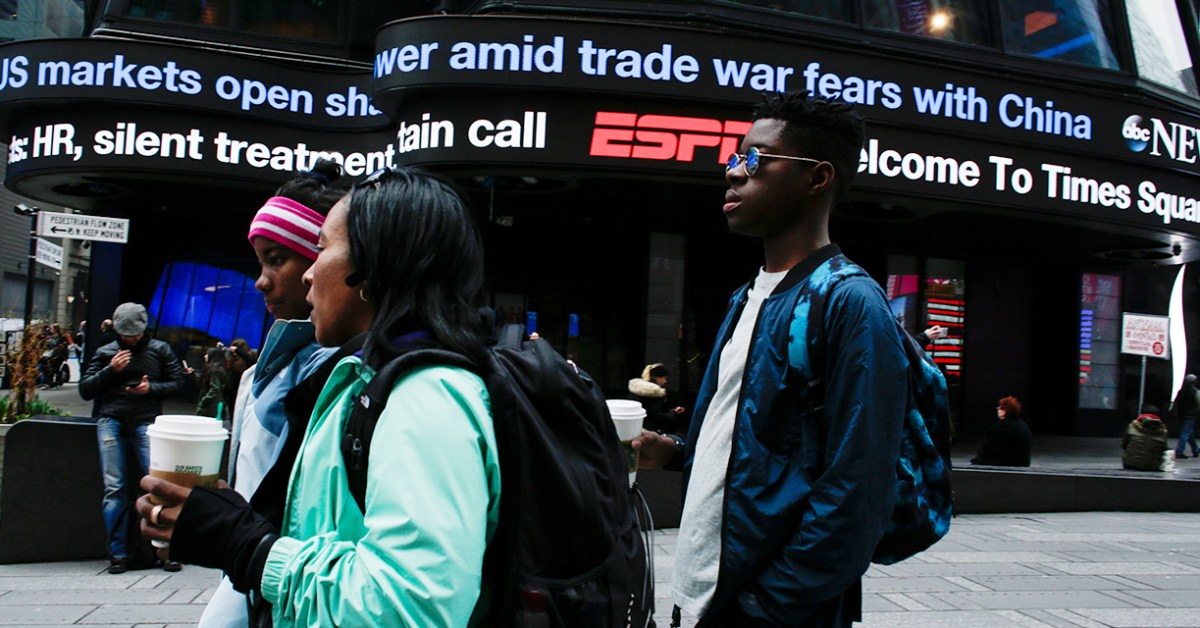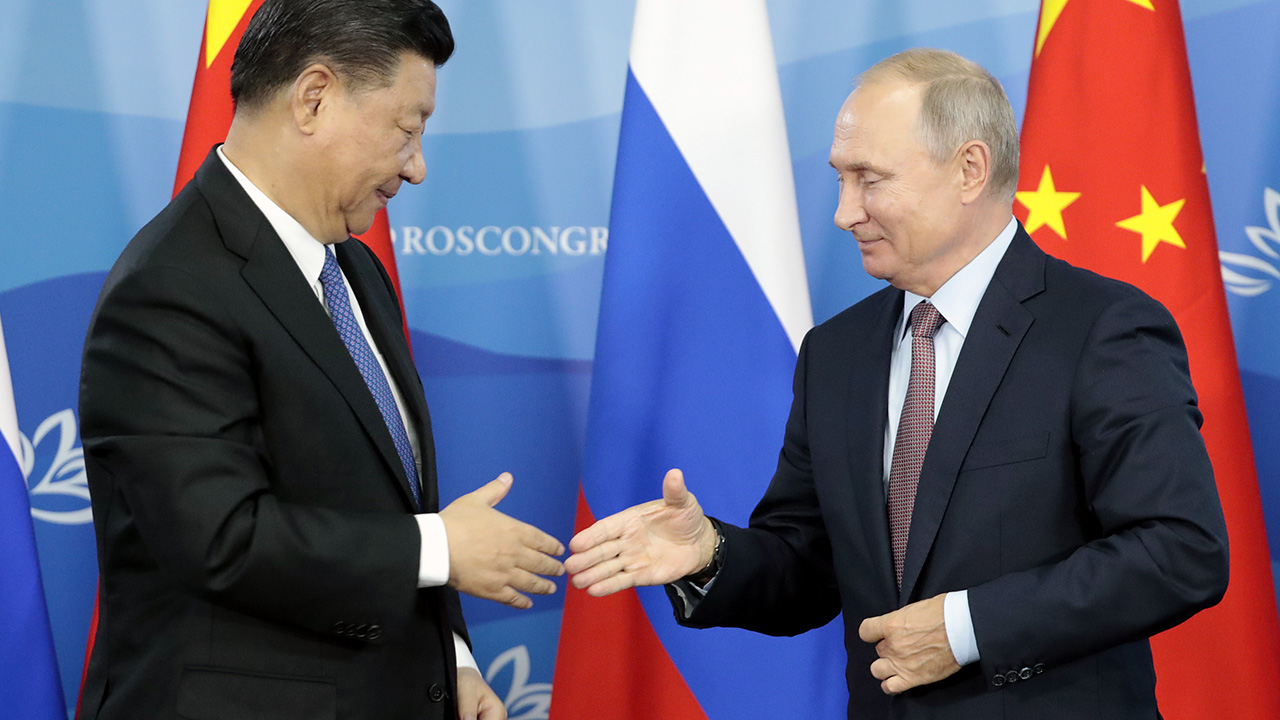As US-China Indulge In Tit-For-Tat Sanctions Over Spy Balloon Controversy; Here’s Gauging The Impact Of China-US Trade And Diplomatic War For The Rest Of The World
The US-China trade war launched by then-President Donald Trump is perhaps the largest commercial conflict in modern history. While the sanctions then were planned to pressure Beijing to change its reported unfair trade practices and decouple the U.S. economy from that of China, however, in the latest, the U.S. has sanctioned six Chinese tech companies for supporting spy balloon programs. China, on its part, has hit back at the U.S. with Sanctions on Lockheed, and Raytheon, two U.S. defence companies. However, what is the likely impact of the heightening tension between the two countries on the rest of the world?

The US-China five-year-old trade war has heightened and is showing signs of turning into a full-blown diplomatic war as it took yet another downward spiral over the spy balloon controversy.
The diplomatic and trade war between the US. and China has taken a new turn, with the US announcing a fresh round of sanctions targeting six Chinese aerospace companies identified as supporting the nation’s military’s surveillance balloon program.
The sanctions resulted from the American military shooting down a second “high altitude object”, supposedly China’s, that went undetected and entered US airspace.

The Ever Growing List Of Chinese Companies Sanctioned By The US
The new round of sanctions targeting six Chinese aerospace companies that supported the Chinese military’s reconnaissance balloon program joins a growing list of companies based in China that the U.S. says pose serious threats to its national security.
Five Years of Ongoing And Dwindling Trade And Diplomatic Relations, US And China
The initial trade sanctions on Chinese firms resulted in high tariffs inflicting considerable harm on U.S. consumers and manufacturing output and employment, but it failed to generate the desired leverage over China.
Taking a closer look at China-U.S. trade and investment relations indicates that the trade war brought some modest changes to existing commercial patterns. However, its long-term effects remain to be seen.
Regarding trade, total U.S. imports from China dropped from $38.27 billion in March 2018 to $32.95 in January 2020; however, it has since then gradually recovered.
U.S. imports of Chinese products subject to the highest tariffs, which were concentrated heavily on intermediate products and capital goods, have experienced the steepest decline. In contrast, US imports of non-tariffed goods, which mainly covered consumer products, have largely been insulated from such effects.
Hence, it would be fair to assume that in the short term, political and economic tensions in US-China relations in the pre-pandemic period, including those resulting from the trade war, have had a chilling effect on bilateral trade relations.

Affecting The World
The US is not the only country to impose sanctions against China. In 2021, the European Union announced it would impose sanctions on 11 Chinese individuals and four Chinese entities responsible for global human rights violations.
This would be the second time the EU had issued a sanction to China, which is also its second-largest trading partner—after the first sanction in 1989 following the Tiananmen Square protests when it raised an arms embargo against China which is still in effect to this day.
Escalating tensions between the US-China have disproportionately affected industries highly integrated with the Chinese market. Not only were industries with a high level of supply chain integration with China – such as auto parts and I.T. hardware – hit with higher tariffs, but these tariff hikes have also had a more sustained negative impact on US imports.
In other words, the higher tariffs had inconsistent effects on different sectors of the two economies while also affecting other world economies, with those sectors with the vastest tariff exposure bearing the highest costs.
The heightened risks generated by the trade war also prompted speculation that multinational corporations (MNCs) may be increasingly relocating production from China back to the United States or other third countries to minimize their vulnerability to geopolitical and economic risks.
This further gained traction as reports of big tech companies like Apple or Samsung moving production from China to friendly countries surfaced. However, recent surveys of MNCs based in China paint a more varied picture.
For example, the annual China Business Climate Survey (BCS) conducted by the American Chamber of Commerce in China (AmCham) in 2022 found that China remains a top business destination for many members. However, most companies did not report new significant investments in the year, a pattern broadly consistent with that reported in the 2020 China BCS.
Similarly, the 2022 Business Confidence Survey released by the European Union Chamber of Commerce in China shows that despite the supply chain disruptions caused by the trade war and the pandemic, European companies remained committed to the Chinese market throughout 2021.
In February 2022, only 11 per cent of the respondents reported that they were considering relocating out of China, increasing to 23 per cent by April 2022. In addition, about two-thirds of the respondents ranked China among their top three investment destinations, especially in the petrochemicals, chemicals, and refining sectors.
While the larger picture still remains in flux, preliminary evidence indicates that the trade war may have had a somewhat immediate, nuanced, and short-term effect on bilateral trade relations.
In contrast, the size of the Chinese market and the ties that foreign companies have forged with Chinese firms over the years may have reduced the likelihood of rapid and large-scale changes in investor relations.
Although China’s position in East Asian and global supply chains will likely no longer look the same as before, we are witnessing the gradual reconfiguration of China-US trade, investment, and supply chain relations, the long-term effects of which are still unfolding.
China Hits Back At US With Sanctions On Lockheed, Raytheon
China imposed fines and sanctions against two U.S. defence companies, further escalating tensions between the world’s biggest economies.
According to China’s Ministry of Commerce, Lockheed Martin Corp. and a subsidiary of Raytheon Technologies Corp. were added to a list of “unreliable entities” for selling weapons to Taiwan.
According to analysts, as with previous sanctions announced against the firms and other U.S. defence contractors, these measures aren’t expected to disrupt operations.
Lockheed, the world’s largest defence company, according to the notice issued, said the companies would be fined twice the contract value of their arms sales to Taiwan since September 2020, when the list first came into effect, without specifying the amount. The companies are required to pay within 15 days.
China considers the democratically self-ruled Taiwan as part of its territory and has long complained about the US supplying weapons to the island.
A day before the announcement, China had warned that it would hit the U.S. with “countermeasures” over its sovereignty violations. On Thursday, it blamed the U.S. for jeopardizing ties by overreacting in the ongoing spat over a balloon. However, the subsequent announcement of sanctions may further escalate that dispute.
Washington contended that the balloon was spying and shot it down, while China claimed it was a civilian airship collecting weather data that went off course.

Unclear Effects
The ministry said in a statement that the Chinese government would ban trade with both firms and block new investment from the two into China. If the companies don’t pay the fines within 15 days, the ministry may increase the fines.
In addition, it will cancel and prohibit work and residence permits for the companies’ senior managers and ban them from entry into the country.
China has also threatened sanctions against US entities in the past that it says are a threat to its national security. In 2020 it said it would impose unspecified sanctions on Boeing Co.’s defence unit, Lockheed Martin, and Raytheon after the U.S. State Department approved arms sales to Taiwan.
Last September, Beijing said it was sanctioning two top executives at Boeing and Raytheon over the biggest U.S. weapons deal with Taiwan in almost two years but didn’t provide details on the measures.
Conclusion: China’s tit-for-tat regarding sanctions has gained much momentum over the years as Beijing has started to “mirror” Washington’s moves.
The latest round of sanctions and counter-sanctions has much infuriated Washington as it has perturbed the rest of the world owing to China’s growing proximity to Russia at a time when the Russian President faces increasing pressure to stop the Russia-Ukraine war.
The increasing decoupling of the western economies, the diplomatic and trade slowdown between the U.S.-China, and China’s increasing proximity to Russia is being closely watched as the race for world dominance gets hotter with each passing year.




